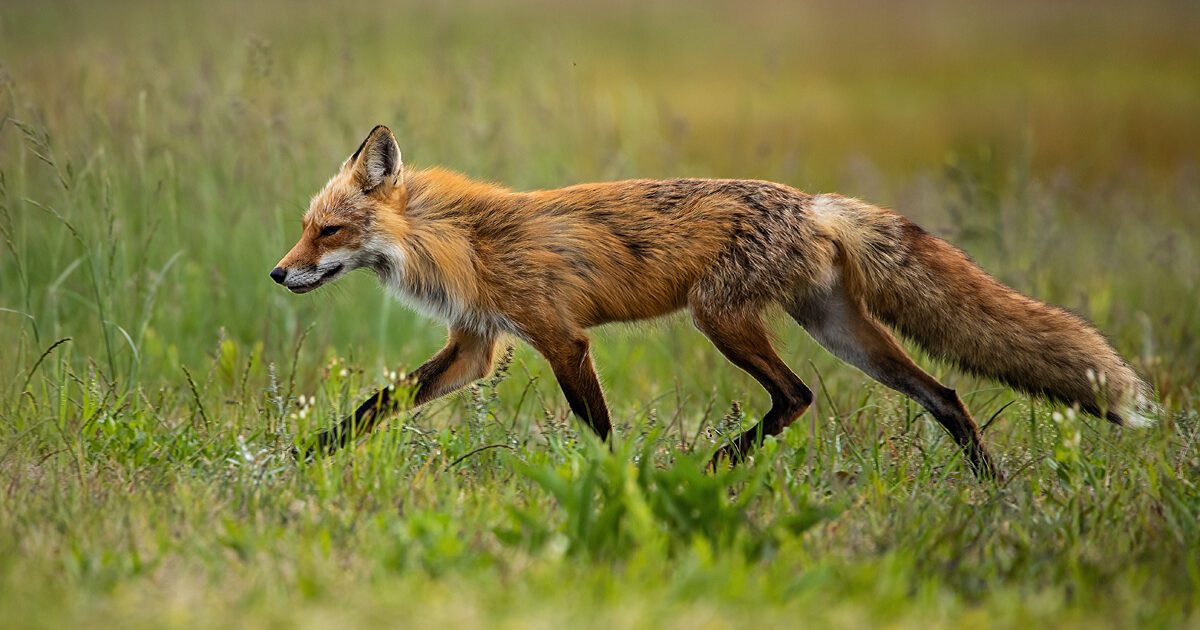
Recovering America’s Wildlife Act: A Missed Opportunity
With the end of the year fast approaching, the federal government’s end-of-year spending bill has been a highly discussed topic. Many natural resource issues were wrapped into this “omnibus spending bill,” including a landmark wildlife package, but in the end Congress failed to pass a monumental piece of environmental legislation which had the capacity to revolutionize American conservation efforts. The Recovering America’s Wildlife Act, also known by the acronym “RAWA,” was introduced to Congress in response to increasingly distressing levels of wildlife deterioration in the United States.
As noted on the bill’s National Wildlife Federation website, a third of the country’s wildlife “currently face an elevated risk of extinction.” This concerning statistic is only a precursor to its potential consequences. Everything from environmental sustainability to large-scale food production to the massive American agritourism industry is reliant on the continual health and stability of our wildlife. Congressional action on this bill, which would provide consistent and preemptive funding for state wildlife agencies and tribes from the federal government, wavered after passing in the House with notable bipartisan support in June due to disagreements over its funding mechanism (for more on the financial squabbles that led to its exclusion, see here). The bill has been introduced three previous times, but 2022 was the closest it has ever come to passing. Although this setback was a major missed opportunity, it is not the end—support for the bill, coming from both sides of the political spectrum, is growing, and its champions hope that with enough momentum, the bill can be reintroduced and finally passed in the upcoming year.
WHAT WOULD THE RECOVERING AMERICA’S WILDLIFE ACT ACCOMPLISH?
In terms of what RAWA would actually accomplish, the bill would enact some of the most influential environmental legislation in American history, which is groundbreaking for several reasons. The bill would provide $1.3 billion annually to state, territorial, and tribal wildlife agencies, divided amongst the states based on need—a huge jump compared to the average $65 million currently provided by the State Wildlife Grants Program, which fluctuates based on congressional proclivities and only scratches the surface of what is necessary to sustain large-scale conservation programs. If that seems an overwhelming budget, consider that according to a report by the Outdoor Industry Association, the outdoor recreation industry makes about $646 billion annually—nearly double that of motor vehicle spending. If not only for the importance of sustainability, support for this bill would also provide a huge, annually consistent boost to an integral socio-economic system.
RAWA’s influx of funding would also allow organizations to expand their conservation work to species beyond just the most vulnerable. One of the most important aspects of the legislation is its proactivity—instead of having to wait for a particular species to reach the highest levels of endangerment to justify financial attention, the bill would allow funding to be distributed to lower-level endangered species and address the problem before it becomes drastic. This would not only be a monumental step toward preserving ecosystems, but would in fact also save money, as the required steps to save extremely endangered species are often much more involved and expensive than precautionary measures taken before the situation becomes dire. These precautionary measures are also often more wide-reaching, supporting a variety of species as well as overall ecosystem health, leading to a positive feedback loop that would ease snowballing environmental problems and prevent more problems in the future. There is also a great deal of successful precedent in preemptive conservation—consider the National Parks, which were set aside as protected public land before the current push for sustainability, and now support some of the most cutting-edge wildlife protection efforts in the country. If not for the inclinations of our predecessors to protect what was not yet in danger, how different might the American landscape look today?
TRIBAL NATIONS AND CONSERVATION
While considering predecessors, another important element of the bill is its designation of funding for the conservation efforts of Tribal Nations, which would mark their “first-ever dedicated source of federal wildlife funding.” The traditional and current caretakers of the lands which support hundreds of vulnerable species, Tribal Nations have been responsible for dozens of recovery efforts that seek to ensure responsible land management and habitat restoration. This bill would be a huge step in supporting these programs, and encourage collaboration between state agencies and tribal communities in developing comprehensive and sustainable conservation programs across the country.
RAWA would not only be a huge national step toward successful wildlife preservation, but would also help to keep Virginia full of the wildlife and ecosystems that make it home by providing $22.8 million dedicated to Virginia’s state wildlife agencies alone. With so much at stake, it is imperative that the Recovering America’s Wildlife Act is reintroduced in the upcoming congressional term with even more momentum and public support. To support the bill, keep an eye on the National Wildlife Federation’s website, which includes further information on specifics of the bill, as well as designated links for petitions for both individuals and businesses/conservation groups, and will certainly continue outreach efforts in 2023. You can also contact your local representatives and encourage them to support and vote to pass the bill, as well as share information and use your voice locally and online to generate as much public support as possible. Without ongoing and vocal support, RAWA may well die on the congressional floor, and so too will many beloved and essential species outside the walls of the Capitol.
References:
https://www.nwf.org/Our-Work/Wildlife-Conservation/Policy/Recovering-Americas-Wildlife-Act
https://www.fs.usda.gov/Internet/FSE_DOCUMENTS/stelprdb5389204.pdf
https://www.congress.gov/bill/117th-congress/senate-bill/2372
Photo: Red Fox Vixen Walking in the Grass [donated by Lori Cash]